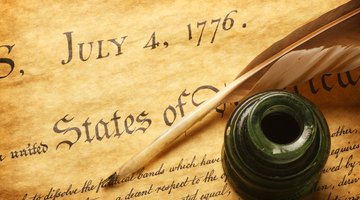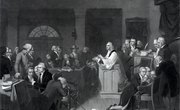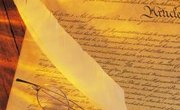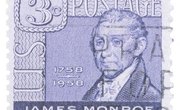When the Second Continental Congress convened on May 10, 1775, it faced a number of important decisions. Delegates decided to form the Continental Army and to appoint George Washington as its commander-in-chief. They chose to try to resolve the ongoing crisis with England. However, the most significant issue faced by the Second Continental Congress was whether to continue seeking reconciliation with Great Britain or to declare independence, debated in June and July of 1776.
Fanning the Flames of Independence
In the opening days of the Second Continental Congress, most congressional delegates favored trying to reconcile with Great Britain. The Congress approved two documents in July, 1775. The first, titled "Declaration of the Causes and Necessity of Taking Up Arms," laid out the reasons Congress felt it necessary to defend colonial freedoms with force. The second, the "Olive Branch Petition," was sent to King George III, in hopes that he would intervene between the colonies and the British Parliament.
Fanning the Flames of Independence
The idea of declaring independence from Britain gained traction after King George III ignored the Olive Branch Petition. Other factors that drove the colonies toward a break with Britain included Parliament's December 1775 decision to allow the Royal Navy to seize colonial ships, mistreatment of colonial civilians by the British military and the January 1776 publishing of Thomas Paine's pamphlet "Common Sense," which made a strong case for independence.
Independence Debated
Even after a full year of warfare against British forces, the Continental Congress was divided on whether to declare independence. In the meanwhile, in May 1776, Congress narrowly approved a resolution for each colony to create a provisional government. Declaring independence was first officially proposed by Richard Lee of Virginia on June 7, 1776. Congress tabled the suggestion until July 1, but appointed a committee of five men – Thomas Jefferson, Benjamin Franklin, John Adams, Roger Sherman and Robert Livingston – to draft a a provisional version of such a decree.
Independence Declared
The majority of the Declaration of Independence was written by Thomas Jefferson. However, Congress continued to debate its points and made several changes to the original document. One of the major changes involved removing an attack on the institution of slavery. On July 4, 1776, the Continental Congress voted to adopt the modified Declaration of Independence. Twelve of the 13 colonial delegations approved the declaration that day, with New York's assent arriving on July 15.
Related Articles
References
- U.S. Department of State Office of the Historian: Continental Congress (1774-1781)
- Massachusetts Historical Society: The Second Continental Congress
- American History: Second Continental Congress Declaration of the Causes and Necessity of Taking up Arms July 6 1775
- Valley Oak Elementary School: Timetable to Independence
Writer Bio
Dell Markey is a full-time journalist. When he isn't writing business spotlights for local community papers, he writes and has owned and operated a small business.











